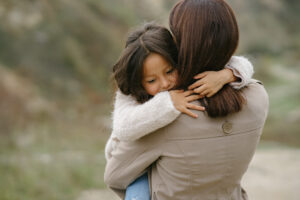
Image by prostooleh on Freepik.
In recent weeks there have been some particularly horrific events reported in the international and local news, including violent conflict, crime and natural disasters. Even more distressing is the fact that these events have caused unimaginable suffering for children and young people.
We may not deliberately expose our own children to the news, but somehow or other, they seem to pick up on the major events occurring in their world. This can cause our children to become upset and start worrying that those things may happen to them or the people they love. They can be especially affected if the adults around them become distressed or they see confronting images or if the news coverage extends over several days.
In general, it’s best to limit the amount of news our children are exposed to. Children under seven shouldn’t be exposed to horrific images and headlines. With older children, we can watch the news with them or watch a news program that’s designed for children, such as Behind the News.
Children feel secure if they know that they can talk to us at any time about anything. When a horrific event comes up in the news, we should prepare ourselves for these important conversations by finding out the basic facts and taking time to process our own response so that we can be calm for our children.
Make time
If your child raises the topic of events in the news, stop and give them your full attention. If they don’t initiate a conversation, it’s up to us to make time to talk with them. Ideally, this will be a time when both we and our children are feeling calm.
Here are some ideas to guide your conversations.
Ask
It’s good to ask what your children already know or have heard about the events in the news. As you listen to your children, it may become clear that they have an incomplete or misguided understanding of what is happening. And what they imagine is happening may be far worse than the reality. If this is the case, we can take the opportunity to correct our children’s misconceptions.
Inform
It’s best to tell our children what is happening in simple, age-appropriate terms, rather than ignore the issue. We should take care to tell our children only what they need to know, avoiding any graphic details. If our children have questions, it’s important to answer them or, if we don’t know the answer, commit to finding out.
Most horrific events do not happen at random—they usually occur within a broader historical, geographical or relational context. So it’s helpful to try to explain the context to our children as best as we can. This helps to minimise their fear that the same thing might suddenly happen to them.
Reassure …
Keep reading over at Growing Faith, a Christian online magazine for parents. Find out more about Growing Faith and subscribe to our monthly e-newsletter here.
